A Place of My Own
what we all can expect moving forward with Marginalia
Two weeks ago I stepped off a train and into my past.
The first time I stood on this platform, my computer bag slung over my shoulder, my camera hanging around my neck, I was only 25. I’d been in the UK for a few days and was still adjusting. My ticket was open-ended as I didn’t know how long my dissertation research would take. I had cobbled together a few grants and my father-in-law had gifted me the plane ticket. So my husband and I calculated I had enough money for five months if needed (I ended up staying four). It was the first time I had been away from my husband since our marriage; it was the furthest I had ever been from my family.
I was already homesick.
But as I stepped through the ticket barrier, emerging for the first time in my life onto the streets of Shrewsbury, I felt a surge of optimism. I was here, on the streets where a fourteenth-century priest named John Mirk had lived. I had spent 18 months reading his sermons, instruction book for parish priests, and every historical article that mentioned him. Walking up the street, away from the train station, I could see the top of a church spire. I didn’t know which one yet, but I knew one belonged to St. Alkmund’s, the church where Mirk had served as vicar in the fourteenth-century.
The first picture I took of St. Alkmund’s square still hangs in my house. It is such a familiar place to me. Most of my trips to the UK since 2001 have included a visit to Shrewsbury and, the past few years, I’ve frequented the cafe housed in a fifteenth-century building in the corner of the medieval market square. I drink my coffee, or tea, and sit, St. Alkmund’s belfry towering above me.
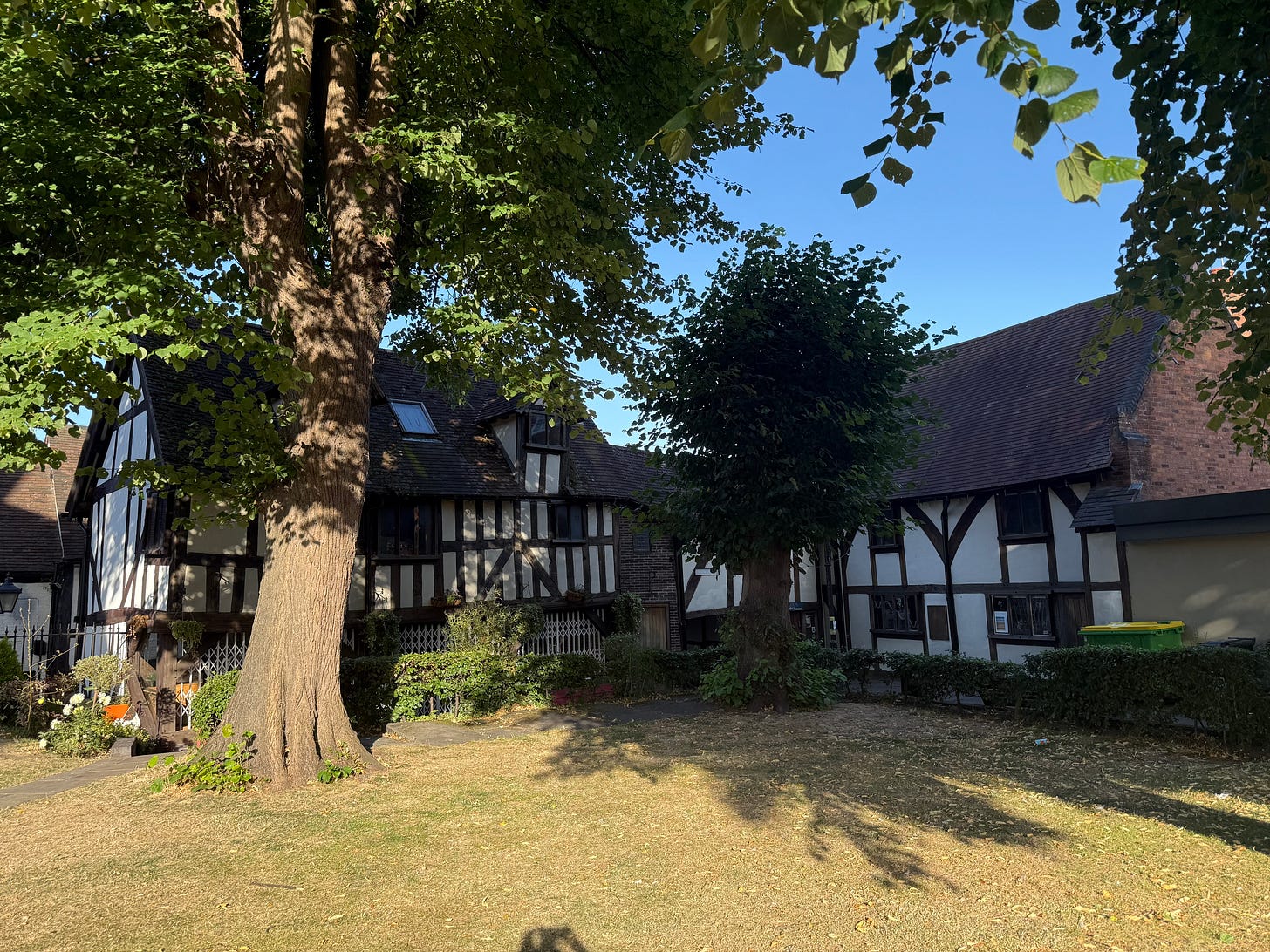
The name Alkmund reflects an early medieval Welsh saint, but the church itself was founded by a tenth-century woman and the town that grew around it is steeped in the memory of another woman named Winifred (St. Winifred—you will learn more about her in my next book). Once, the vicar of St. Alkmund’s invited me to tea. He showed me the fifteenth-century tower and pulled out the Victorian silver. Once, I brought my students studying abroad from Texas. They had never been to an Anglican service and stood up at the wrong time. Instead of correcting them, or letting them feel silly when they looked around and realized no one else was standing, the congregation stood up beside them in solidarity. I almost cried it was so beautiful. Afterwards, the church ladies made us tea and fed us cookies—most of which my five year-old daughter ate.
I live in Texas, but this place in England is part of me. Would you believe I wrote the beginning of my dissertation (my first book) in this place? I did. I also wrote a few blog posts that now live at The Anxious Bench on Patheos. I also wrote some of what is becoming my next book. The roots of faith run so deep here. For over a thousand year Christians have worshipped in this spot where I now drink tea. For me, this place bridges past and present, bringing together who I am as a woman in the church and as a scholar who studies women in the church; who I am as a modern Christian who believes in the same God as the medieval Christians who once worshipped in this place.
Shrewsbury isn’t my Cheers. No one knows my name when I visit. At best, my sojourn at the Bear Steps Cafe is months, usually more than a year, apart. I don’t come to this place because it needs me. It doesn’t. I come to this place because it is good for my soul (not to mention relevant to my research).
It is a room of my own.
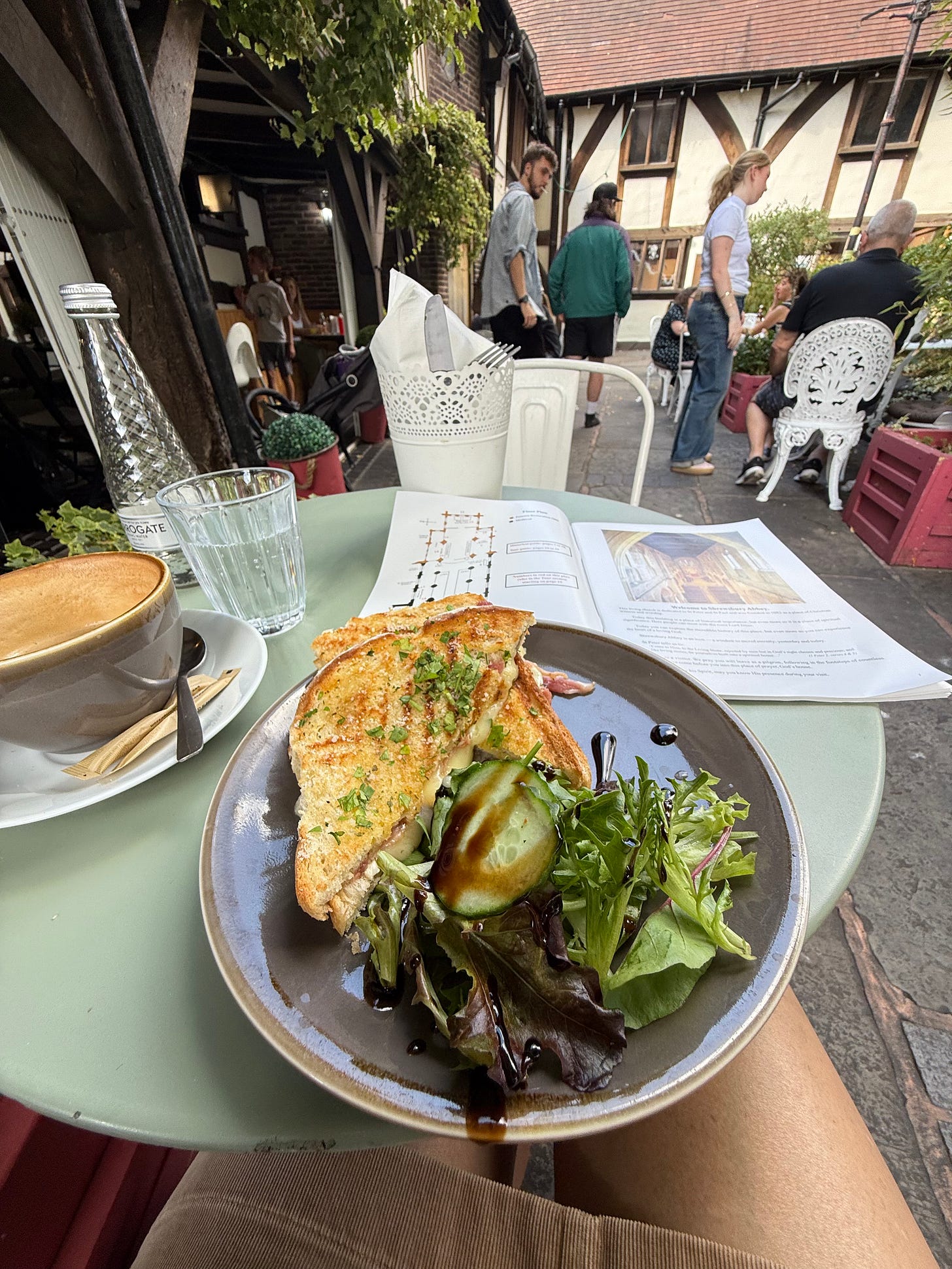
On the second day of my recent visit, as I sat for a second time in the square (this time drinking coffee), I thought about Marginalia. I’ve been writing in this space now for two years. Like my first visit to Shrewsbury, my first post here was an unknown. I had no idea what would happen. Like my visits to Shrewsbury, my writing at Marginalia is still irregular. Sometimes I worry about this, as I watch my peers here who are more consistent and more frequent than me. But then I remember why I am here. Substack doesn’t need me anymore than St. Alkmund’s needs me.
I am here because, like the cafe in Shrewsbury, Marginalia has given me a room of my own. A place where I can sit for a while and think. A place where I can share my thoughts with others and contribute my knowledge and skills and faith in a way that makes our world a little better.
Thank you for being on this journey with me. As I move forward, I am going to try for three times a month (which means I will be successful at 2 with a 3rd bonus from time to time)—although I can’t promise they will be at a consistent time (probably they won’t be). At least one of these posts will showcase the work of another author, either in the form of an excerpt or a review by me. (I am very excited about two upcoming authors I will host here soon—
and ). The other posts will vary more—sometimes staying in the medieval world and sometimes bridging the past with the present.I am so grateful for those of you who have purchased a subscription. I often think about just ending the payment option; I’ve already reduced subscriptions to roughly $3 a month. Unfortunately, paid subscriptions is one of the measures Substack uses to measure the success of a page. Also, many authors here need the financial support and I don’t want to minimize that. All this to say, if you choose to financially support me, I am grateful. Feel free to suggest a minimal payment, too, like $5 a year, and save the rest of your money for other substacks. If you choose just to subscribe for free, I am still grateful. It amazes me everyday how many people read my words.
Mostly, I want to say thank you. Thank you for sitting with me at Marginalia. I hope it is a place that helps you as much as it helps me. I hope it is a place that we can both stay a while.
*People are enjoying this post so much I added a few more pictures.


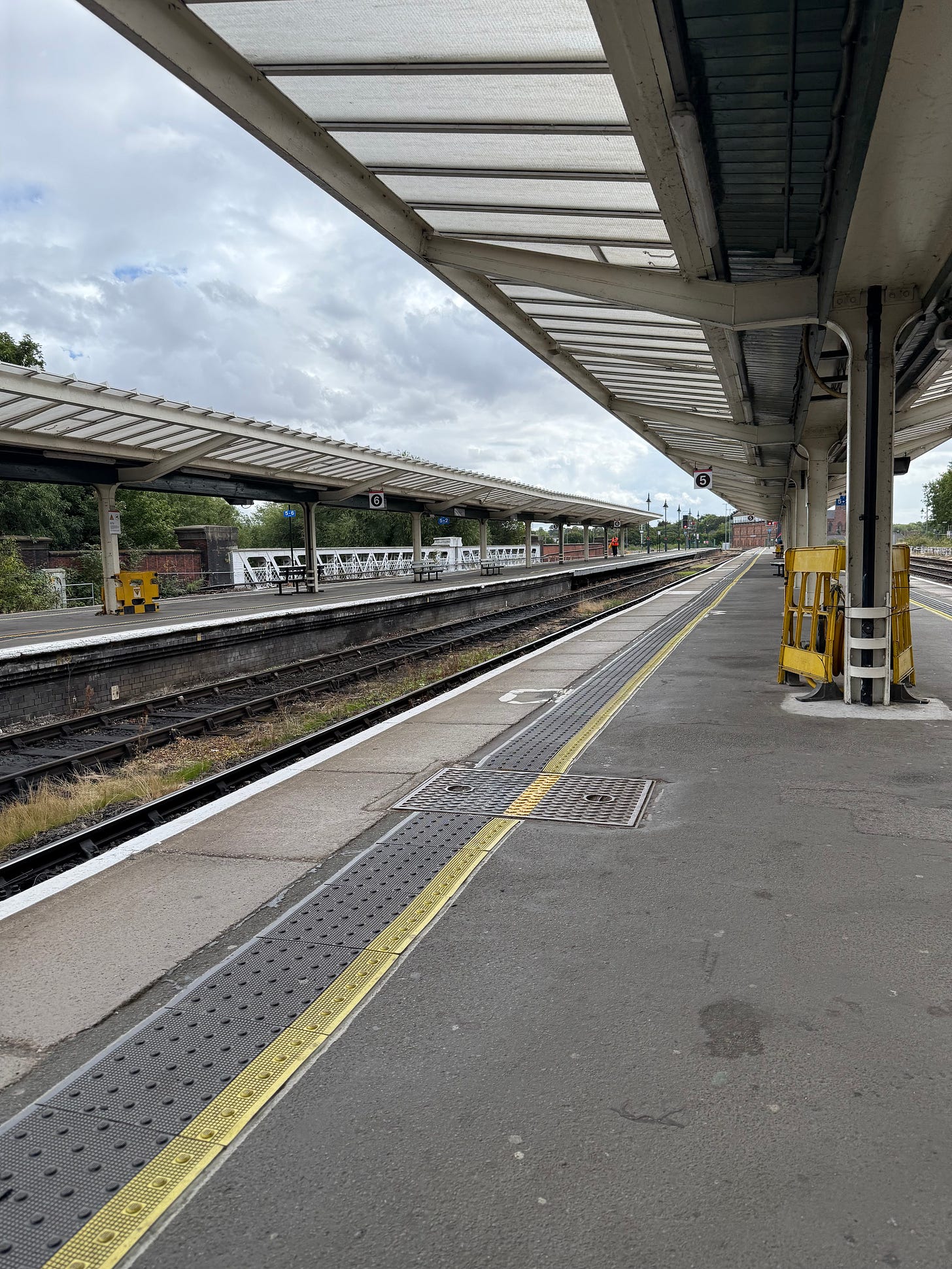
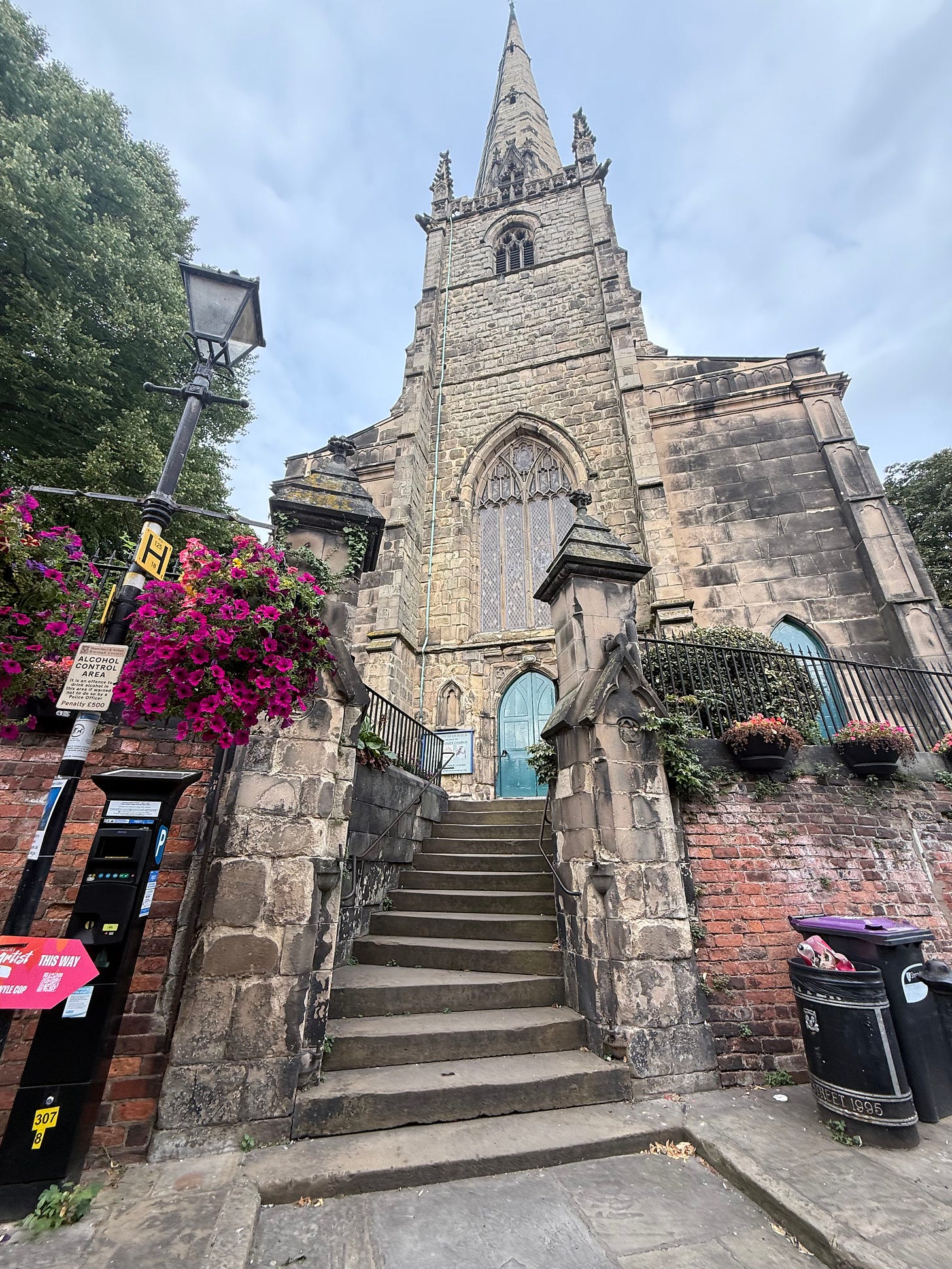
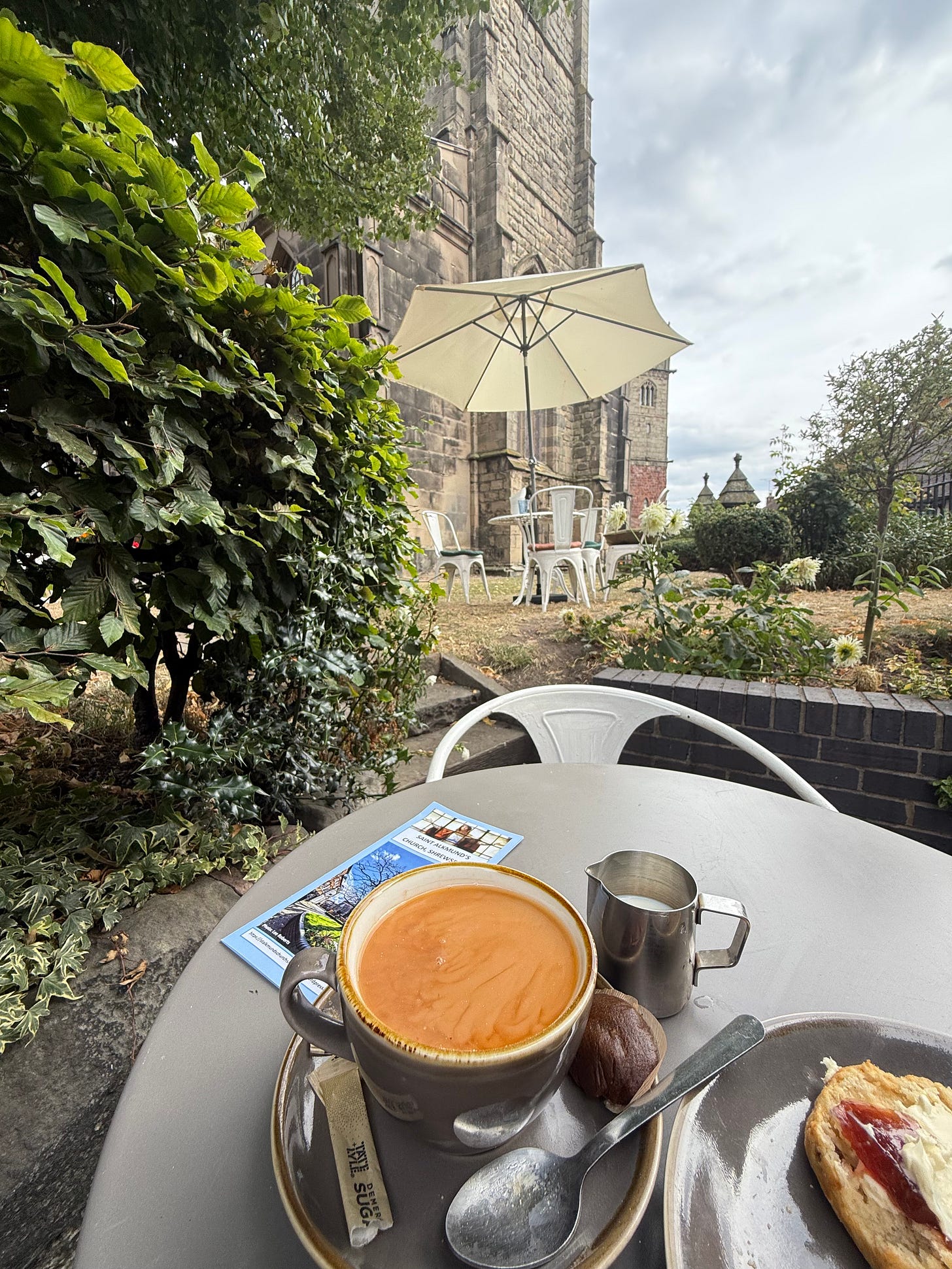
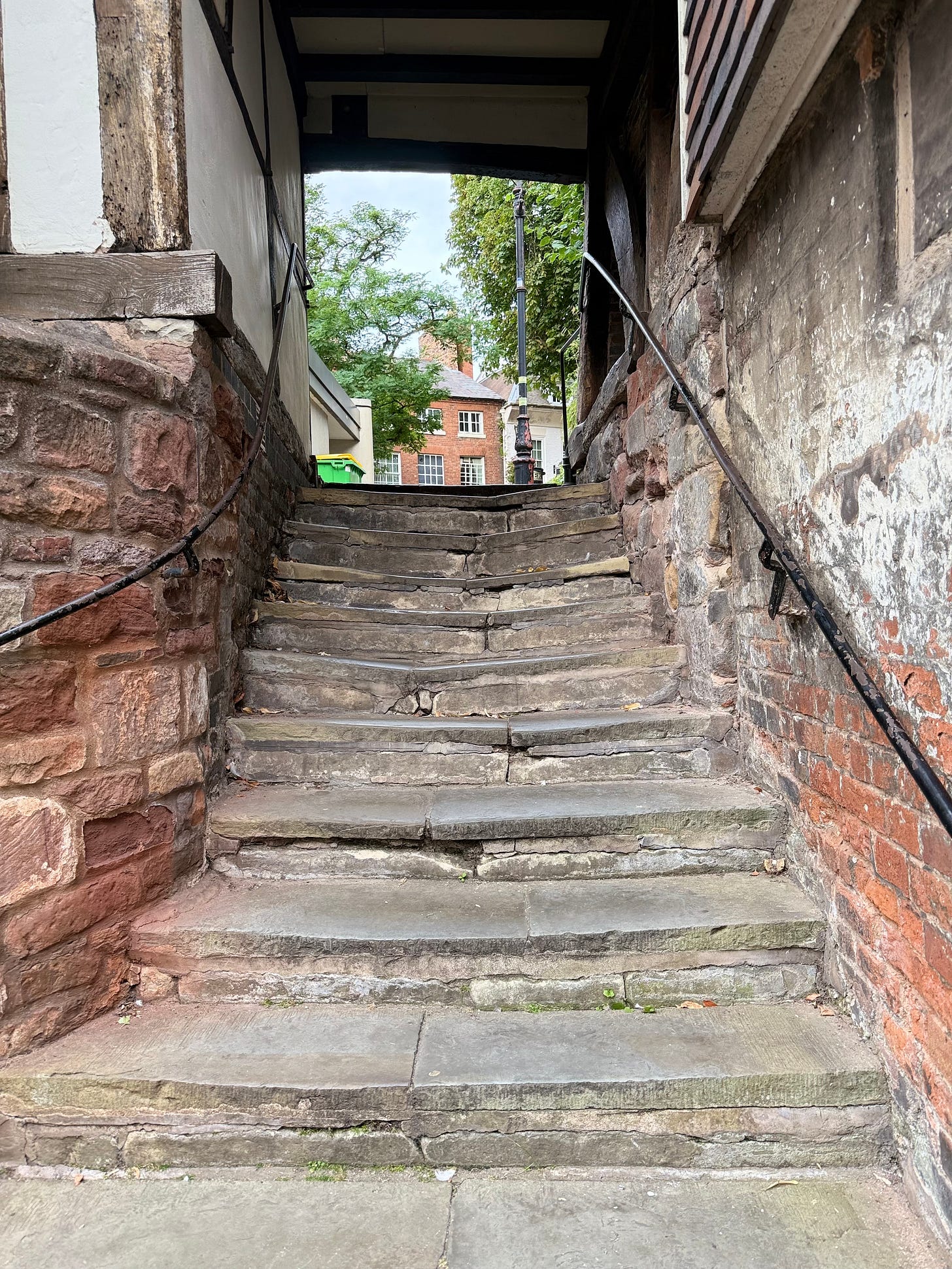
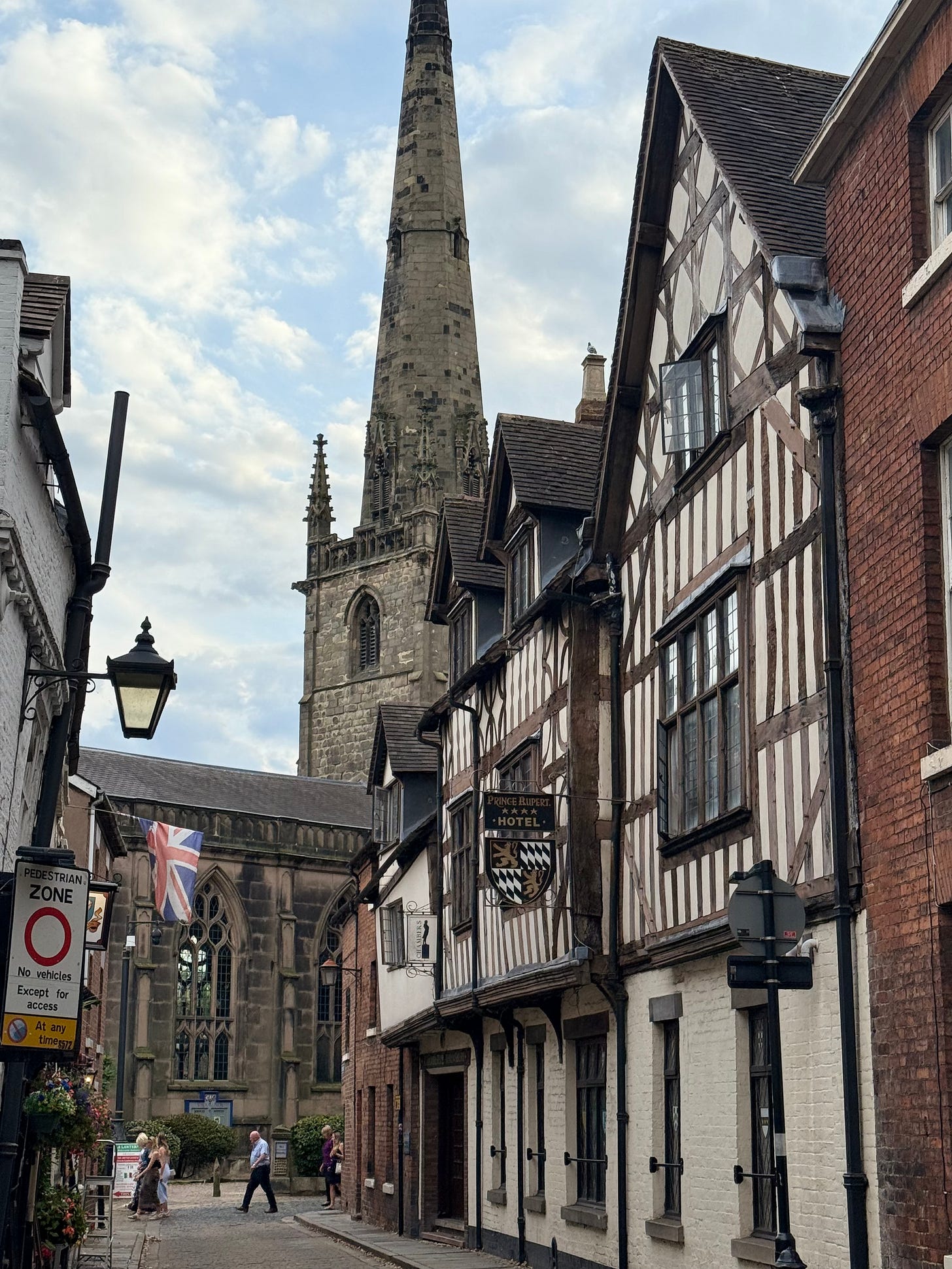
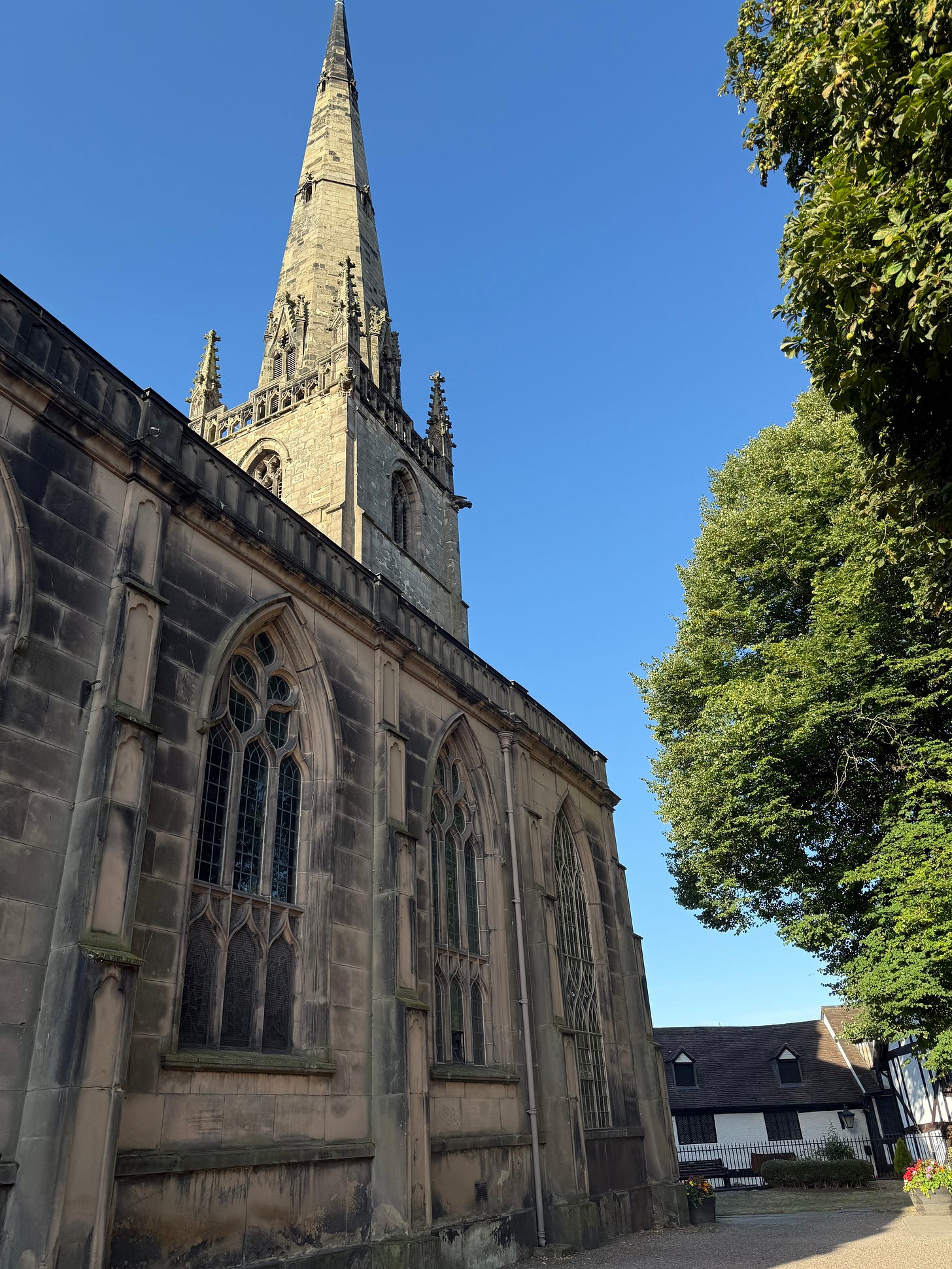
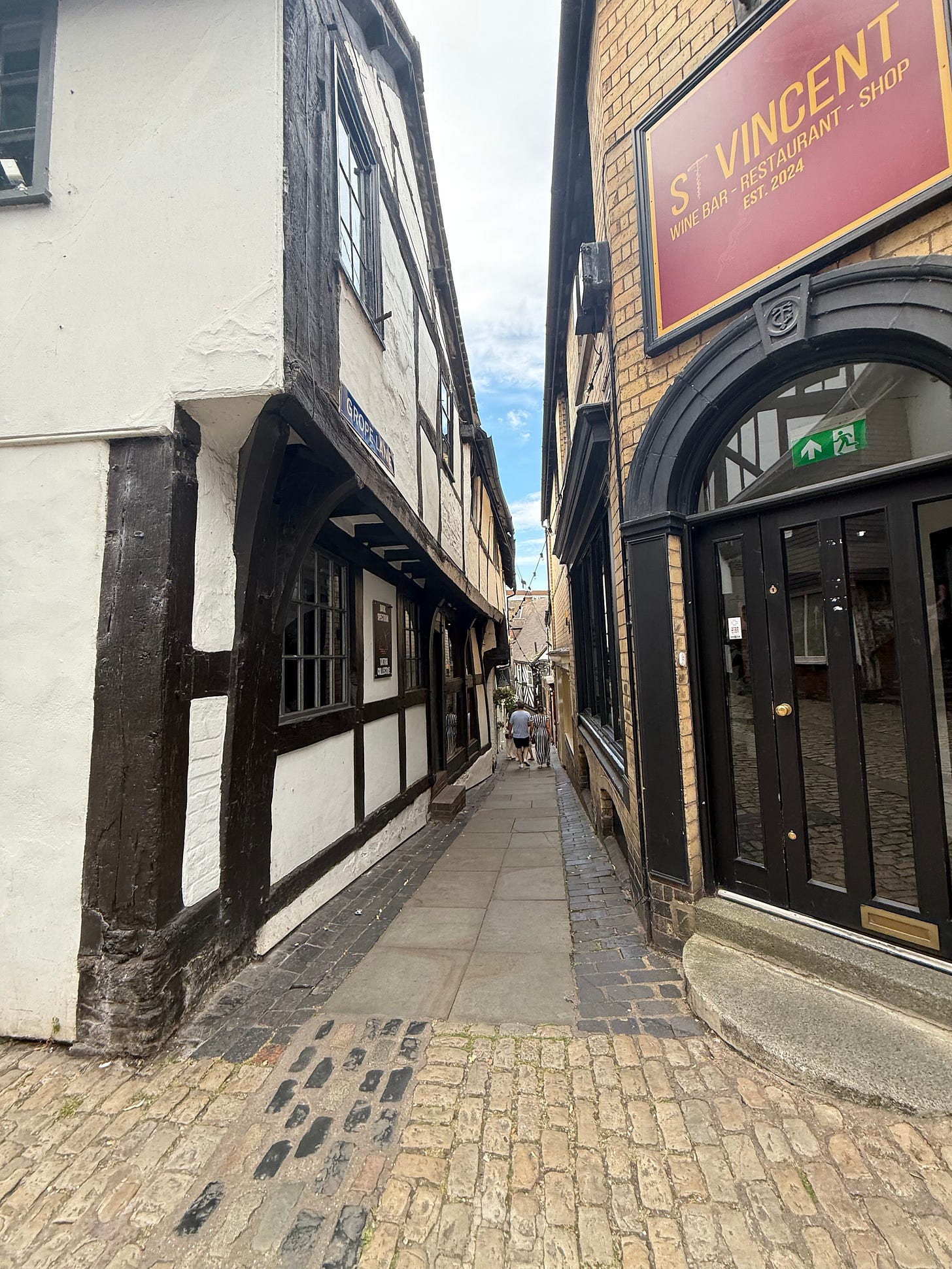
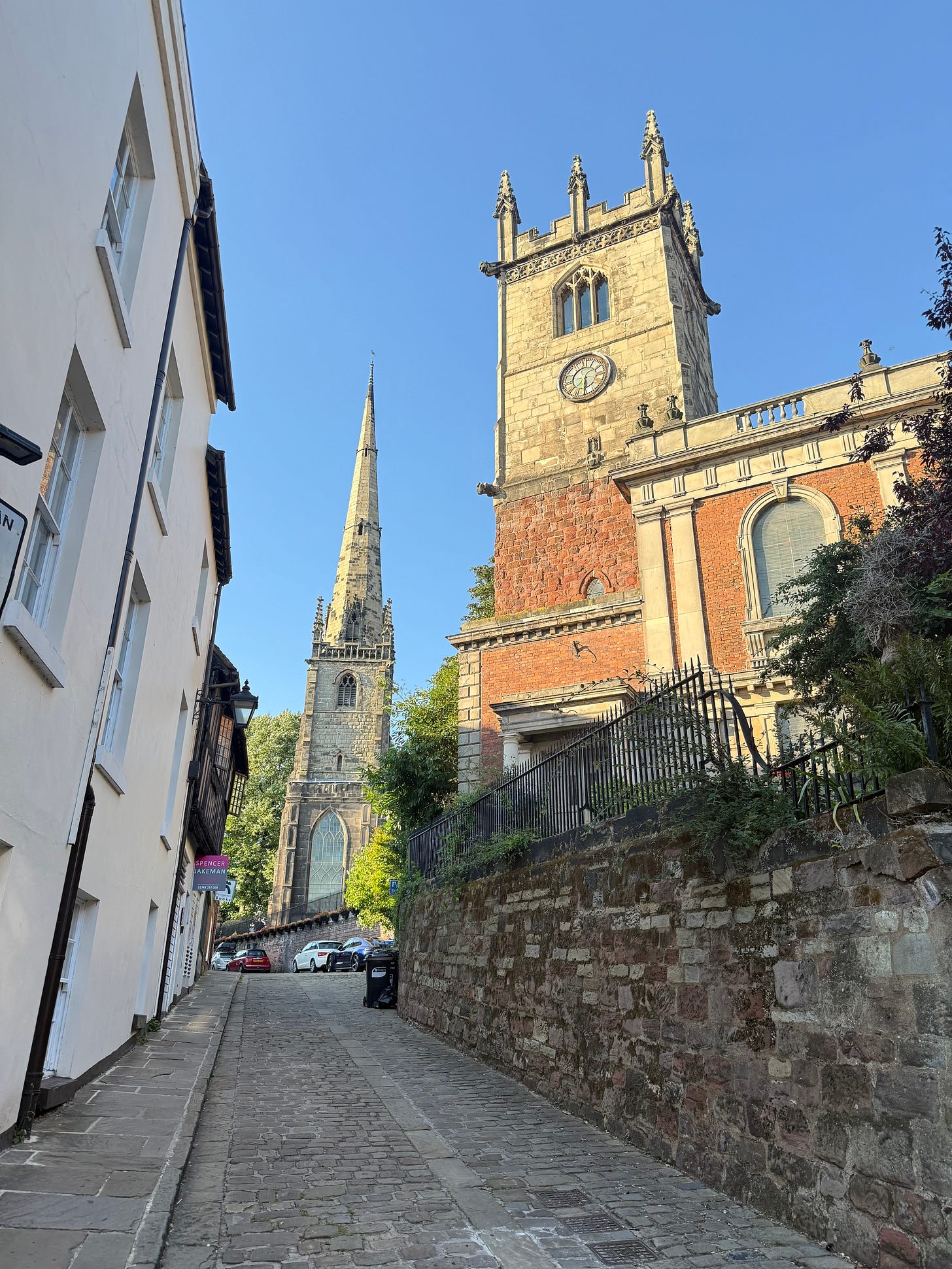
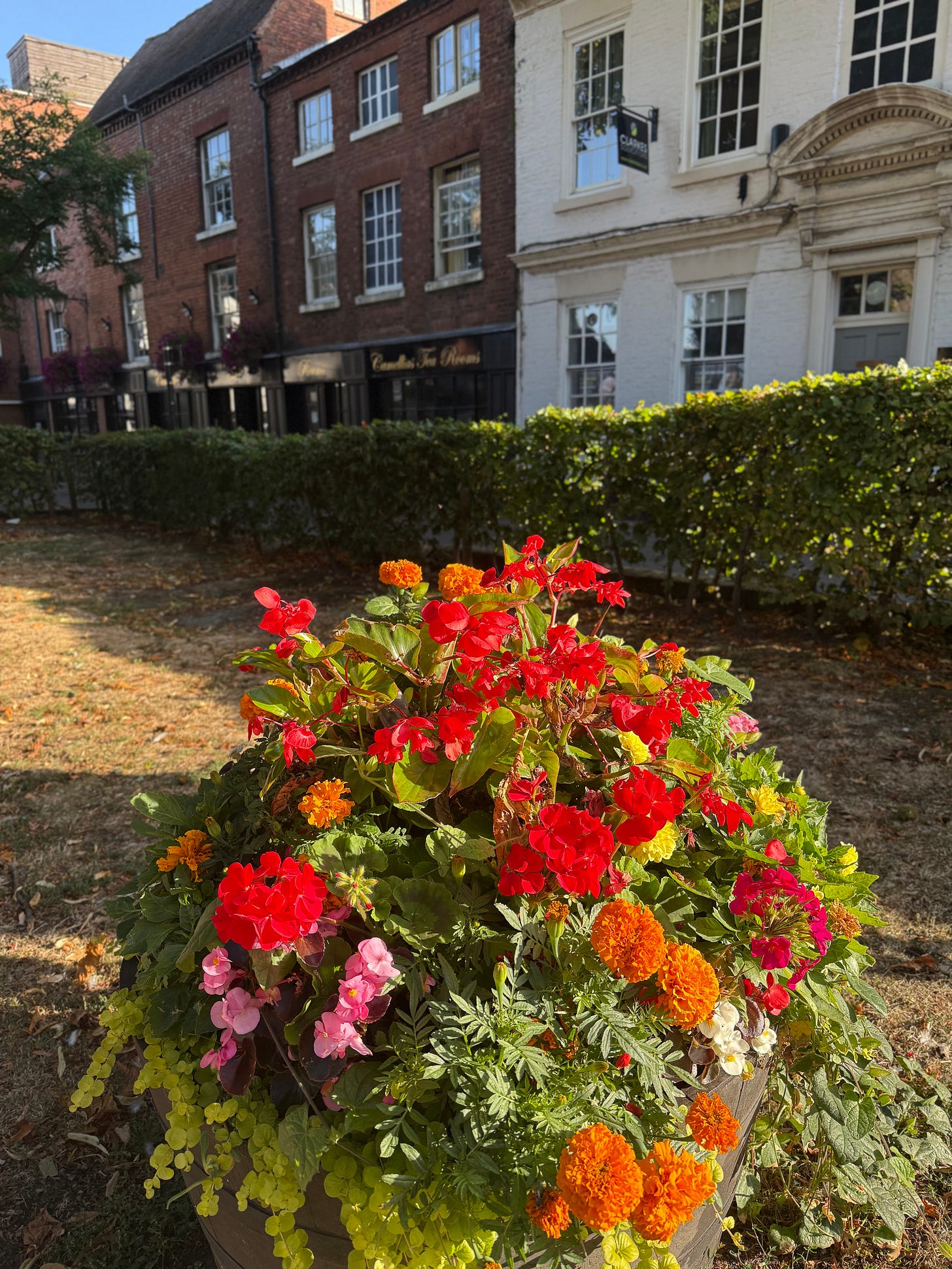
I always enjoy your posts how ever they come. Learning from you is an incredible privilege and I hope you know how much your perspective as a Christian, historian, and woman means to me personally. Thank you!
This was enjoyable reading! During our first visit to the UK in 2000, we spent several days in Shrewsbury. I fell in love with the place. Our two children's high school choir sang during Palm Sunday services at the Abbey Church of Saint Peter and Paul. We haven't been back to Shrewsbury since, but I have gone back via Ellis Peters' (Edith Pargeter's) Cadfael mysteries.